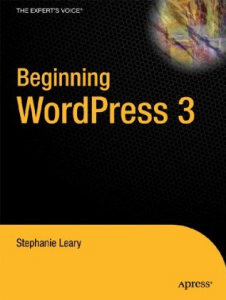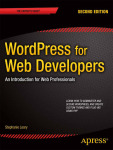Over the weekend, at WordCamp Austin, I had a conversation that I think a lot of women in WordPress will recognize. I introduced myself to a male developer, and he asked if I was speaking later in the day. I said yes, and he asked about the topic of my talk. (All normal so far.) When I told him, he quizzed me about what I planned to say on the topic. In this case, it was a plugin roundup, so I gave a few examples of the plugins I planned to mention, and he actually said at one point, “That’s the answer I was looking for.”
I’ve been quizzed before — in fact, I had an almost identical conversation at the same event last year — but never so blatantly, and with so little offered in response.
Thanks to The Mary Sue‘s discussion of the Fake Geek Girl problem in science fiction fandom, I know that this behavior has a name: Microaggression. And wow, it’s really frustrating.
What’s probably going through the man’s mind is: I want to make sure the project/my work is accurately represented.
Here’s what the woman hears: I want to make sure you’re qualified to talk to me.
I had similar conversations with women and with men who weren’t posturing as gatekeepers to the community, and there are two key differences. First, there’s give and take. My conversational partner asks questions, and is no doubt evaluating me based on my answers, but s/he offers information in return (“I’m speaking too, on [___]”). And second, we congratulate each other on being asked to speak in the first place (“You’re speaking? That’s great! What’s your topic?”) instead of treating the opportunity as our due. These tiny conversational cues make a huge difference.
I had dozens of hallway conversations, of course, but this one stuck in my mind. If other women who are newer or less confident of their place in the community met with similar microaggression, I hope they, too, were able to brush it off and enjoy the rest of the event. I certainly found lots of more pleasant people to talk to, but I know all too well that having the gates of the community slammed down in your face repeatedly can make you decide that this group neither wants nor needs you, and your free time would be better spent on something else.
In case you were wondering, ladies: you are welcome here, and we definitely need you.




Great article about sexism in the tech community. It can be very subtle, and it is important to recognize it when we see it. Tech folk—like everyone else—operate under the illusion that our segment of society is more egalitarian and free from sex discrimination and gender bias, and, as I have witnessed, lash out rather defensively if their illusion is challenged. It is still important to let people know such behavior can not and should not be tolerated. The gender a person was born with is beyond their control. Attitudes are much more malleable.
Interestingly, I don’t see that as sexism, rather a gender differrence in outlook, which the author adeptly identified. I might ask a similar question, with no genderbias intended, but rather as a directed inquirymore along the lines of “are you planning to cover topic x which is important and relevant to me”. Now, I suppose this makes me similarly “microaggressive” like the culprit mentioned, however, I perceive it simply as a measure to get the information I want to know without leading the interviewee to merely say what I want to hear in an attempt to sway me into attending a lecture that may not otherwise be relevant to me.
It’s sexist if only the women are quizzed at the start of each conversation.
Agreed. But, keep in mind that our profession does attract a larger percentage of people with social awkwardness. It may not be you, and you may not be aware of the interactions that are happening in your absence that replicate your experience without contextual bias.
Hi Stephanie!
I saw you speak in WordCamp Phx. a couple years ago, and at WordCamp Austin this year. Funny you mention this because I actually had a similar experience, and while I too met and talked to lots of really great people I felt a little negative about my male peers at the same time. I had never really felt this way in the community before, but even after the camp I even noticed it a little bit on twitter. I actually started feeling insecure! On top of that I am a designer, not a developer, so I can’t speak as much geek as the guys, but I keep up. Thanks for writing this and making me feel valid and heard!
And as always I enjoy all your awesome info :)